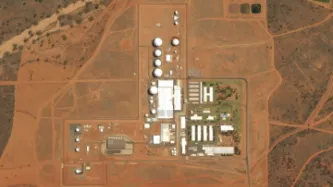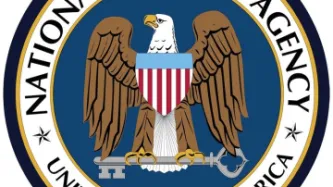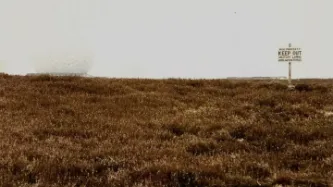Search
Content type: Examples
Companies like the Australian data services company Appen are part of a vast, hidden industry of low-paid workers in some of the globe's cheapest labour markets who label images, video, and text to provide the datasets used to train the algorithms that power new bots. Appen, which has 1 million contributors, includes among its clients Amazon, Microsoft, Google, and Meta. According to Grand View Research, the global data collection and labelling market was valued at $2.22 billion in 2022 and is…
Content type: Examples
Documents acquired under the Government Information (Public Access) Act 2009 reveal that staff and student protests against cuts at the University of Sydney were surveilled by both the university administration and police, who have been widely criticised for using excessive force at education protests. The university administration conducted "risk reviews" of protests and looked for links between education protest organisers and other political organisations. Emails include screenshots of…
Content type: Examples
By late June, two months after its launch, Australia’s A$1.5 million CovidSafe app had failed to help authorities identify even a single contact of a confirmed case. In the states of Victoria, New South Wales, South Australia, and Tasmania the app had not picked up any contacts that had not already been identified by human contact tracers, and in Western Australia and Queensland no confirmed cases had downloaded the app. In Victoria, where the virus has been spreading, only just over 30 of 568…
Content type: Examples
The Australian government reported soon after releasing its CovidSafe contact tracing app that the app doesn’t work properly on iPhones because it doesn’t use Apple’s Exposure Notification framework and the Bluetooth functions deteriorate if the app isn’t kept running in the foreground. The government will update the app to use Apple’s framework. The app will store data on Amazon Web Services servers within Australia, although critics have expressed concern that the data could be handed over to…
Content type: Examples
More than 6 million Australians downloaded the government’s COVIDSafe contact tracing app after being told it was necessary to help health officials track future coronavirus outbreaks. In late May, a software developer found a flaw in the app that would allow someone with a relatively simple Bluetooth device to crash the app running on nearby phones so they wouldn’t attempt to pair with other nearby phones and no data would be available to health officials if the phone’s owner becomes infected…
Content type: Examples
The UK government, in collaboration with universities, water companies, and public research bodies, is preparing to launch a national research programme to develop an early warning system for future waves of COVID-19 by detecting the coronavirus in sewage. About half of those infected with SARS-CoV-2 excrete it in their faeces, and enough virus survive to be detectable in untreated water using ultrasensitive PCR analysis. Teams in the UK, several other European countries, Australia, Israel, and…
Content type: Examples
Only 16% of Australians had downloaded the country's COVIDSafe app by May 3, a week after its launch on April 26, even though most said they support the federal government's coronavirus contact tracing app. In an Ipsos poll, 80% of those who said they were unlikely to download the app cited privacy concerns such as who holds and has access to the data, and which country's law applies. The government has said its goal is for at least half of the population to download and install the app.…
Content type: Examples
Two million people downloaded Australia's COVIDSafe app in the first four days it was available; the government's goal is to reach 10 million, or about 40% of the population. Users are asked for a (not necessarily real) name, age, mobile number, and postal code. The app exchanges a Bluetooth handshake when it comes within 1.5 metres of another app user, then logs the handshake and encrypts the exchange.
The data is used to notify users if they have come within close contact for 15 or more…
Content type: Examples
Police will be barred from accessing metadata collected by Australia's proposed coronavirus contact tracing app, which will be able to identify when users have been 1.5 metres of each other for more than 15 minutes, Australia's government services minister, Stuart Robert, and prime minister, Scott Morrison, have promised. Only state health investigators will access the data, even though experts say that the 2018 telecommunications laws potentially allow law enforcement access. Critics are…
Content type: Examples
The Australian government's planned contact tracing app will reportedly be based on Singapore's TraceTogether, which relies on Bluetooth connections to detect other phones in range and log the results, so that if a phone user tests positive for COVID-19 and consents their close contacts can be alerted by uploading the logs to a centralised server. A second app, ConTrace, is in development for the Public Transport Information and Priority System; the prototype requires no personal information…
Content type: Examples
On request, Vodafone Australia, which has 6 million subscribers nationwide, handed the mobile phone location data of several million Australians to the federal and New South Wales governments to help them monitor whether people are following the social distancing restrictions. The governments, medical experts, and media had previously used the data collected by transport apps such as CityMapper, but the number who use that one app is necessarily limited. Vodafone claimed the data was anonymised…
Content type: Examples
The Western Australia state police force is using drones to deliver audio warnings to enforce the quarantine restrictions placed on some individuals and sending more than 200 officers to patrol the streets to break up gatherings and enforce social distancing in parks, beaches, and cafe strips. The state's premier, Mark McGowan, admitted the measures were extreme, but felt they were necessary to send the message to residents. Police have been granted greater powers to charge people if they…
Content type: Examples
A phone-tracking system used by SAPOL for criminal investigations was used to better understand where a coronavirus-infected 60-year-old couple, who had travelled from Wuhan to visit relatives, roamed in Adelaide in order to identify people who might have been exposed, according to the South Australian police commissioner. Police used a program that only requires a phone number to initiate a download of where the phone has been used; to use it they must meet a legislative threshold…
Content type: Examples
The body of a 57-year-old was found in the laundry room of her home in Valley View, Adelaide, in September 2016. Her daughter-in-law who was in the house at the time of the murder claimed that she was tied up by a group of men who entered the house and managed to escape when they left. However, the data from the victim's smartwatch did not corroborate her story.The prosecution alleged that the watch had recorded data consistent with a person going into shock and losing consciousness. "The…
Content type: Examples
In February 2019, with a general election expected in May, the Australian government revealed that Australia's main political parties had been hacked by a "sophisticated state actor". The Australian Cyber Security Centre uncovered the hack while investigating a just-revealed hack of the Australian parliament's computer networks. A spokeswoman for China's ministry of foreign affairs denied the suggestion that China was responsible.
https://www.ft.com/content/9de75c4a-331f-11e9-bd3a-8b2a211d90d5…
Content type: Long Read
This piece was originally published in Lawfare in April 2018
The United States is party to a number of international intelligence sharing arrangements—one of the most prominent being the so-called “Five Eyes” alliance. Born from spying arrangements forged during World War II, the Five Eyes alliance facilitates the sharing of signals intelligence among the U.S., the U.K., Australia, Canada and New Zealand. The Five Eyes countries agree to exchange by default all signals intelligence…
Content type: News & Analysis
Privacy International has urged the Australian Parliament to ensure that rigorous legal and judicial safeguards are at the heart of future reforms to national security legislation. In a submission to the Joint Parliamentary Committee on Intelligence and Security, Privacy International gave its full support to the objections raised by the Australian Privacy Foundation in its submission to the Inquiry into Potential Reforms of National Security. The Inquiry is considering a…
Content type: News & Analysis
15 October 2014
The following was written by Carly Nyst, Legal Director for Privacy International, and originally appeared in the Guardian's Comment is Free section:
Until the fall of the Berlin wall in 1989, the East German state security service – the Stasi – conducted surveillance and kept files on a third of the country’s population. One of those people was activist and dissident Ulrike Poppe, whose communications and activities were spied on by Stasi operatives constantly for 15 years.…
Content type: Press release
Privacy International has filed a federal lawsuit seeking to compel disclosure of records relating to a 1946 surveillance agreement between the US, UK, Australia, Canada and New Zealand, known as the “Five Eyes alliance”.* We are represented by Yale Law School’s Media Freedom and Information Access Clinic (MFIA). The most recent publicly available version of the Five Eyes surveillance agreement dates from 1955. Our complaint was filed before the U.S. District Court for the District of Columbia…
Content type: Press release
Privacy International, in partnership with 30+ national human rights organisations, has today written to national intelligence oversight bodies in over 40 countries seeking information on the intelligence sharing activities of their governments.
Countries may use secret intelligence sharing arrangements to circumvent international and domestic rules on direct surveillance. These arrangements can also lead to the exchange of information that can facilitate human rights abuses,…
Content type: News & Analysis
According to Snowden documents analysed by Privacy International, the Australian Signals Directorate had access to and used PRISM, a secret US National Security Agency program which provides access to user data held by Google, Facebook and Microsoft.
This is the third spy agency of the 'Five Eyes' alliance confirmed to have had secret access to Silicon Valley company data - an alliance whose rules and policies remain classified. Earlier this year, a British court ruled that GCHQ access to…
Content type: Long Read
Few revelations have been been as troubling for the right to privacy as uncovering the scope of the Five Eyes alliance. The intelligence club made up of Australia, Canada, New Zealand, the United Kingdom and the United States has integrated its collection efforts, staff, bases, and analysis programs. Yet the legal rulebook governing how the agencies ensure the most comprehensive joint surveillance effort in the history of mankind remains secret.
The little that is known suggests a…
Content type: News & Analysis
The central premise of international intelligence cooperation is that states are able to both access valuable partner information to protect their national security, and focus their own resources elsewhere in a mutually beneficial way. But is it really a quid-pro-quo partnership?
As the Intercept recently revealed, German policy-makers certainly have reason to doubt that this would be the case. What Germany has learned, like many others before them, is that dependence on the…
Content type: News & Analysis
In a disturbing move to broaden its mass surveillance powers, the government of Australia is pushing forward a bill that undermines fundamental rights, including the right to privacy. Disappointingly, this comes mere months after civil society and citizens alike expressed outrage over the Australian intelligence service’s offer to share deeply personal information about ordinary citizens with its Five Eyes partners.
The Bill, which amends the Australian…
Content type: News & Analysis
The following is an excerpt from an Op-Ed written in the New Zealand Herald by Privacy International's Legal Officer Anna Crowe:
Since the release of documents by Edward Snowden nearly a year ago, New Zealand has often been seen as a passive participant in the Five Eyes intelligence-sharing alliance, not unlike a good kid hanging out with the wrong crowd.
However, Snowden documents released last month and the news that New Zealand appears to be sharing intelligence…
Content type: News & Analysis
While revelations about NSA mass surveillance dominated the news in late 2013, a less well-publicised scandal was engulfing the Australian intelligence services, which had just raided the offices of a lawyer representing the small nation of East Timor in an international case against Australia.
The case concerns allegations that Australia spied on East Timor’s cabinet during sensitive commercial negotiations over oil and gas revenues. If true, this was spying on the basis of greed, to exploit…
Content type: News & Analysis
Australia’s intelligence agencies have beenconducting mass surveillance for more than half a century, routinely sharing the fruits of such labours with their Five Eyes allies in the US, UK, Canada and New Zealand. Australian spying facilities are staffed by the NSA and the UK’s GCHQ, and Australian intelligence officers are routinely tasked with work by their Five Eyes counterparts. Australia and its allies have infiltrated every aspect of the modern global communications…
Content type: Long Read
The recent revelations, made possible by NSA-whistleblower Edward Snowden, of the reach and scope of global surveillance practices have prompted a fundamental re- examination of the role of intelligence services in conducting coordinated cross-border surveillance.
The Five Eyes alliance of States – comprised of the United States National Security Agency (NSA), the United Kingdom’s Government Communications Headquarters (GCHQ), Canada’s Communications Security Establishment Canada (CSEC), the…
Content type: Press release
Privacy International today has filed a complaint with the Australian Inspector-General of Intelligence Security, calling for an immediate investigation into deeply troubling reports that the Australian intelligence services offered to violate the privacy rights of millions of citizens by handing over bulk metadata to its Five Eye partners.
According to the leaked Five Eyes memo published in the Guardian on 2 December, the Australian Signals Directorate, during a meeting…
Content type: Report
The recent revelations, made possible by NSA-whistleblower Edward Snowden, of the reach and scope of global surveillance practices have prompted a fundamental re-examination of the role of intelligence services in conducting coordinated cross-border surveillance.
The Five Eyes alliance of States – comprised of the United States National Security Agency (NSA), the United Kingdom’s Government Communications Headquarters (GCHQ), Canada’s Communications Security Establishment Canada (CSEC), the…













